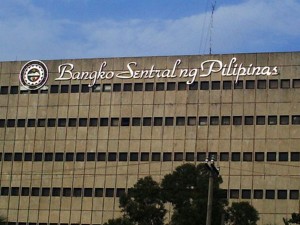BSP: Inflation to stay well within gov’t cap

MANAGEABLE INFLATION. The Bangko Sentral ng Pilipinas is confident that inflation this year will not go beyond 5 percent, as projected, owing to increasing agricultural output.
The Bangko Sentral ng Pilipinas does not expect inflation to breach the 5-percent threshold this year, citing the improvement in the country’s food supply and declining prices of imported goods.
According to Ma. Cyd Tuaño-Amador, assistant governor at the central bank, there are signs that inflation will remain manageable over the short term.
Ms. Amador cited the growing output of the agriculture sector, which she said would help boost supply of food products and thus temper food-price pressures.
Amador also said the weak global economy, driven by sluggish growth observed in the United States and some European countries, would temper demand and affect prices of some imported goods. In turn, domestic inflation may be pulled down.
“We see some dampening of inflation pressures coming from basically the weakness of the global economy, which translates to some softening of global commodity prices through weaker demand,” Amador explained. “Agriculture output has turned favorable … that should be a considerable force [serving to] mute the tendency of inflation to accelerate.”
Latest inflation data from the National Statistics Office showed that the annual rate of increase in consumer prices stood at an average of 4.3 percent in the first half of 2011, well within the government inflation cap of 3 to 5 percent for the full year.
The BSP had said there was a chance that annual inflation could go beyond 5 percent in the third quarter, but stressed that the full-year average would stay at or below 5 percent.
But since then, Amador said, price pressures have eased because of developments here and abroad.
Inflation pressures seen earlier this year had prompted the BSP to raise interest rates and the reserve requirement for banks. It explained that the moves were necessary to temper price pressures.
Early this year, the BSP raised its key policy rates, which influence commercial interest rates, by a total of 50 basis points. Overnight borrowing and lending rates now stand at 4.5 and 6.5 percent, respectively.
The interest-rate hike was meant to temper demand for bank loans, which fuel demand for goods and services, and thus accelerate inflation, if all other factors affecting prices remained constant.
The reserve requirement—the percentage of deposits that banks should park with the BSP as reserves—has already been raised by a total of 2 percentage points, or from 19 to 21 percent.
That initiative was meant to remove banks’ excess liquidity, which could be used for lending. As a result, demand and inflation would be tempered.
With price pressures easing and with the US Federal Reserve expected to keep its own interest rates at historic low of near zero, Amador said there would be less reason for the BSP to implement another interest rate hike.
A wide gap between the interest rate of the United States and that of the Philippines may influence investors to shift their portfolio investments toward the latter.
